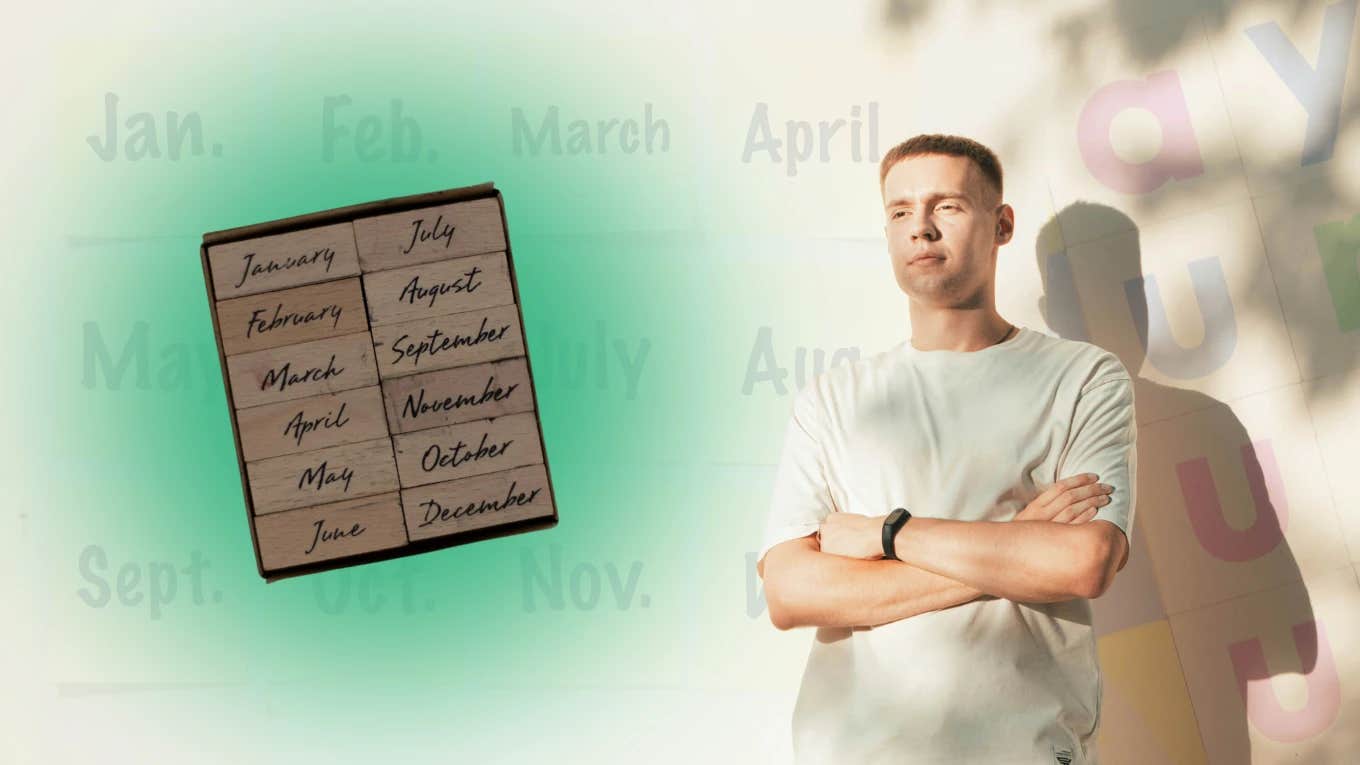What The Order You Visualize The Months Of The Year In Reveals About You
Our minds work in mysterious ways.
 Artem Balashevsky and Olga Vilkha via Unsplash / Ranitaa's Images, ToddKuhns and Joe_Potato via Canva
Artem Balashevsky and Olga Vilkha via Unsplash / Ranitaa's Images, ToddKuhns and Joe_Potato via Canva In elementary school, we’re all taught about the months of the year. Some people remember the months based on a song or rhyme. Others remember them in a visual way, seeing the months mapped out in a particular pattern.
The order in which you visualize the months of the year reveals if your brain works in one specific way.
If you’re able to see the months of the year in your mind’s eye like you’re looking directly at a calendar, you could have synesthesia.
Synesthesia is a neurological condition in which a person’s senses are blended or crossed, meaning you experience one sense while engaging in another. Someone with synesthesia might be able to taste a certain sound or picture words that have a specific color.
Visualizing the months as a calendar is called calendar synesthesia, also known as time-space synesthesia. Someone with this version of synesthesia sees the image of a calendar in front of them when thinking about the months of the year.
Calendar synesthesia is a form of spatial-sequence synesthesia, which means numbered sequences are seen in visual patterns. Seeing units of time in a visual pattern isn’t the only indicator of synesthesia. Some people’s brains also see units of time as having shapes, textures, or colors.
One person with spatial-sequence synesthesia described how he sees the months of the year, explaining, “For me, everything is in sequence.”
Robbie Scott shared his experience with synesthesia, saying, “This is all just happening in my mind’s eye, but it does feel and seem like it’s projected outward.”
“When I’m thinking of the months of the year, each of them has a specific color, and they’re always the same… They kind of go around me. They connect back here, behind my head,” Scott said.
“There are so many more dimensions to this, I just don’t know how to really put them into words,” he continued. “Numbers, they’re all in a sequence; names have certain colors; every letter of the alphabet has a color and the alphabet has a certain sequence, too.”
There are many different ways in which people picture the months of the year.
Some people envision the months of the year vertically, going from top to bottom, starting with January, and moving down in a straight line, like they’re reading from a list. Others see the months in a line from left to right.
Some people see months marginally like they're looking at a calendar. It’s also possible to picture the months in a circle, as on a clock face.
Influencer Meghan Elinor said her mind was blown when she realized different people see the months in different ways.
“I just [thought] that people pretty much just all envision it exactly the same,” she said. “Obviously, it makes sense that people would see things a different way in their minds than they do written on paper, but I never realized there are people who picture the months of the year any differently than I do.”
She described how she envisions the months, saying, “I see it like a track, like if you’re looking at a running track … I don’t start the year in my mind with January, and I don’t know why, and I never knew it was weird.”
Instead, she sees the months of the year as starting with September, then looping around as though they were placed on a track.
Synesthetic calendars are idiosyncratic: The form they take varies from one person to the next.
Research has found that people with spatial-sequence synesthesia have very strong memories and are able to recall dates and important events better than those without the condition.
The ways our brains work can vary wildly from one person to another. No two people will see or feel the exact same thing, even when asked to picture something thought of as static, like time.
It goes to show that everyone’s mind operates in its own unique way. Those differences create a collage of lived experiences, proving we can always learn something new from people around us.
Alexandra Blogier is a writer on YourTango's news and entertainment team. She covers social issues, pop culture and all things to do with the entertainment industry.

